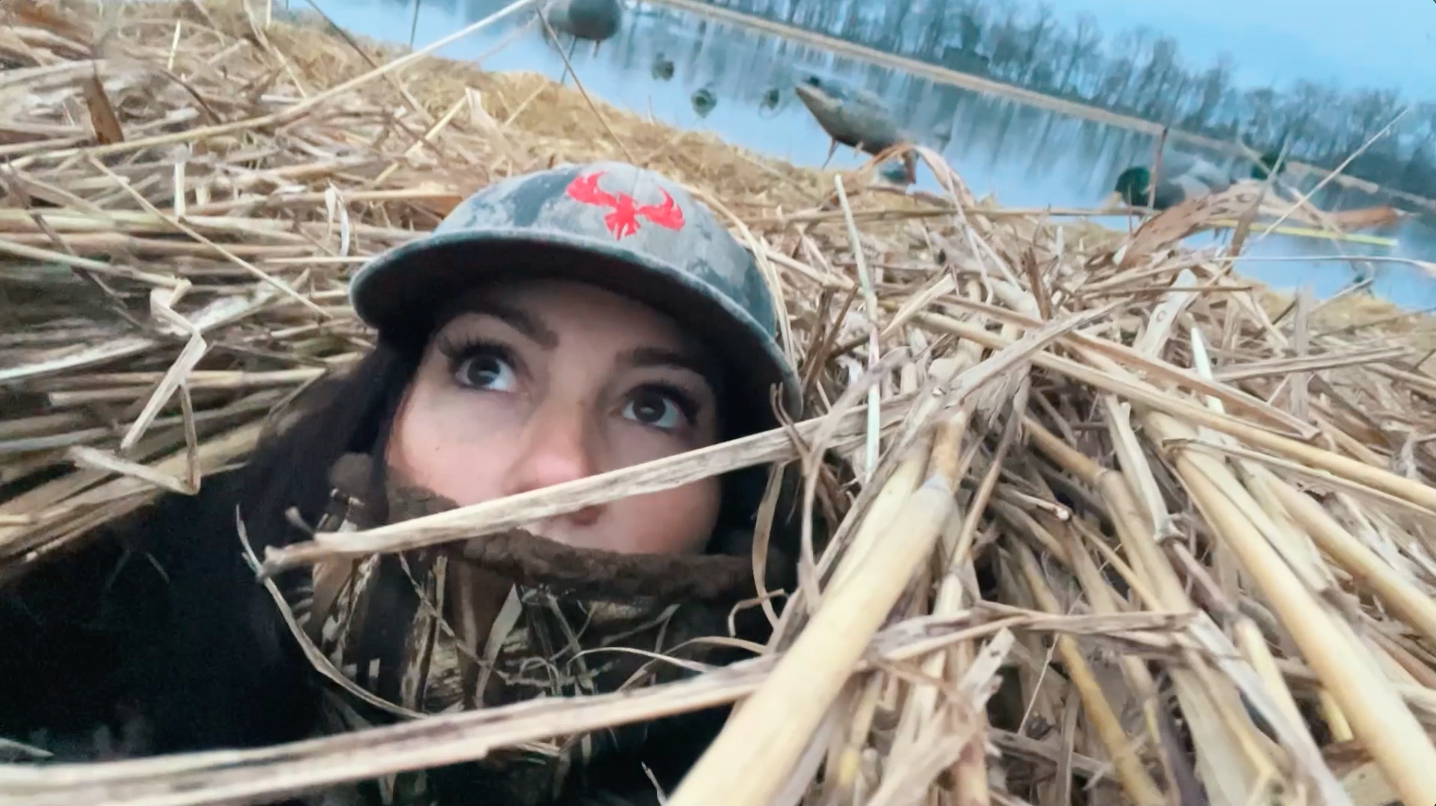Winter arrived before we knew it, so it was back to North America, where we’d stay for the next couple months. The plan was to celebrate Christmas at my parent’s house, have a crack at Fred’s annual steelhead derby, and then head on over to Arkansas to fish the White river and try duck hunting for the first time.
The idea to try hunting waterfowl hatched over a campfire chat last steelhead season. Our friends, Tim and Brit, natives of the Natural State, ignited a spark that had been flickering within me the last few years. I’d always wanted to try hunting ducks and geese, but a lack of access, dogs and decoys had pushed it back on my priority list. When Tim said all we had to do was show up, just like that, plans were made to visit them the following winter.
We flew from Vancouver to Colorado and then to Bentonville, Arkansas. Our first taste of duck hunting awaited us at Tim’s friend’s property, boasting a flooded pond tailored for this very purpose. The crack of dawn found us bundled up, alarms set for 4 am, ready to embrace the unknown. As we settled into the blind, we awaited the arrival of ducks, armed with shotguns and decoys.
Yet, as the day unfolded, it became evident that hunting was slow and that the region was not yet seeing its usual number of birds. We shifted gears and set our sights on Stuttgart, the renowned capital of duck hunting.
The Tradition of Duck Hunting in Arkansas
Dating back to the early 19th century, duck hunting has been a cherished tradition in Arkansas, shaped by the state’s unique geography and abundant wetlands. Native Americans and early settlers relied on waterfowl as a vital food source, laying the foundation for a rich hunting culture that continues to thrive to this day. From the sprawling rice fields of the Delta to the vast cypress swamps of the Arkansas River Valley, the state’s diverse ecosystems provide an ideal habitat for ducks and hunters alike.
Types of Blinds
One of the essential aspects of duck hunting in Arkansas is selecting the right blind. From traditional pit blinds to elevated platforms and floating blinds, hunters have a variety of options to choose from based on their preferences and hunting location. Pit blinds, dug into the ground near waterfowl habitats, offer concealment and stability, while floating blinds provide mobility and versatility, ideal for hunting in marshes and flooded timber. Additionally, hunters may opt for layout blinds or natural blinds crafted from surrounding vegetation, blending seamlessly into the environment to avoid detection by wary ducks.
How It’s Done: Techniques and Strategies
Duck hunting in Arkansas requires a combination of skill, patience, and understanding of waterfowl behavior. Hunters typically employ a range of techniques to attract ducks, including calling, decoying, and camouflage. Using duck calls to mimic the sounds of feeding ducks, hunters create a sense of realism to lure birds within shooting range. Decoys, strategically placed to simulate a flock of resting ducks, further enhance the illusion, drawing in curious birds seeking companionship and safety in numbers. As the ducks approach, hunters carefully conceal themselves in blinds, waiting for the perfect moment to take aim and make their shot.
Seasons and Species Diversity
Arkansas boasts a diverse array of waterfowl species, attracting hunters from far and wide throughout the hunting seasons. The primary duck hunting season typically runs from November to January, with peak migration periods occurring during the colder winter months. Mallards, teal, pintails, and gadwalls are among the most commonly hunted species, while occasional sightings of canvasbacks, redheads, and other migratory ducks add to the excitement of the hunt. With ample opportunities for both resident and migratory waterfowl, Arkansas offers something for every duck hunter, regardless of experience level or preferred species.
Cultural Significance and Community
Beyond the thrill of the hunt, duck hunting holds deep cultural significance in Arkansas, fostering a sense of camaraderie and connection among hunters and conservationists alike. From annual duck hunting festivals and competitions to local hunting clubs and conservation organizations, the hunting community plays a vital role in preserving wetland habitats and promoting sustainable hunting practices. Duck hunting is more than just a pastime; it’s a way for Arkansans to connect with nature, honor tradition, and forge lasting friendships rooted in a shared love of the outdoors.
Historical Roots and Conservation Efforts
The history of duck hunting in Arkansas is intertwined with efforts to conserve wetlands and protect waterfowl populations for future generations. Recognizing the importance of habitat preservation, conservation initiatives such as the Arkansas Game and Fish Commission’s Wetland Restoration Program and Ducks Unlimited’s conservation projects have made significant strides in restoring and maintaining vital waterfowl habitats across the state. By working collaboratively with landowners, government agencies, and conservation organizations, Arkansas continues to uphold its legacy as a premier destination for duck hunting while ensuring the long-term sustainability of its natural resources.
Check Out These Great Resources to Get Duck Hunting Today!
Watch our experience as first time duck hunters
Four Affordable Way to Hunt Waterfowl
Stepping Up to the Blind
Your Guide to Camo and Non-Camo Options
Your Guide to Buying Hunting Gear on a Budget




